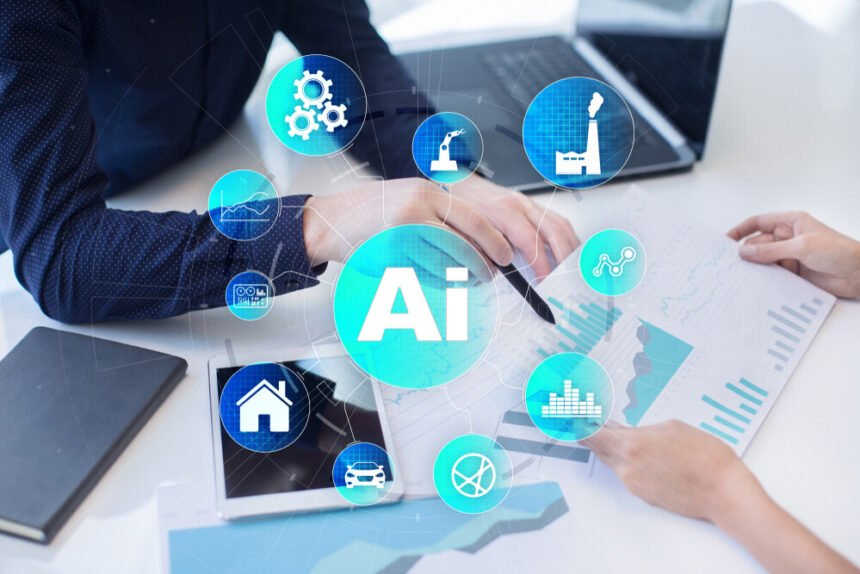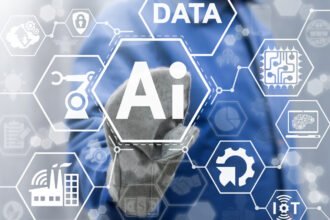If you are thinking AI is a big thing for small businesses, then think again.
Sure enough, IT powerhouses like Amazon and USP are relying on AI robots to enhance employee experience. But then, the fact is, even start-ups are readily experimenting with AI technologies, big-time. For instance, there’s a pizza start-up in Mountain View, California that is employing several robots to assist humans in assembling and baking pizzas.
The point is AI is not just the province of big businesses. Even small businesses are harnessing the power of AI to boost their productivity.
In fact, small businesses are seeking help of top artificial intelligence companies to integrate AI tool such as Salesforce Einstein to their CRM, marketing and customer service systems to further improvise their businesses processes, and thereby enhance the efficiency and productivity of the organization.
Here I walk you through four major ways AI could help small business owners streamline various business processes:
1. AI in the HR Manager’s Role
If anything, AI could assist the HR in three major ways:
# For Employee Engagement
For the starters, 70 percent of employees feel disengaged at work.
Companies, in all likelihood, are aware of this, but then, the fact is it’s not easy for small businesses to invest in employee engagement activities.
Enter AI solutions such as Tangowork and Rocketbot.
Backed by internal chatbot solutions both these bots are programmed to provide employees with HR information 24/7. And, in case, the chatbot fails to offer an adequate answer, the query gets automatically directed to the concerned person in your company.
# Improving Employee Performance
As it turns out, the HR teams, time and again, have to chalk out training programs, seminars, and other activities to brush-up and even polish the existing skills of the in-house sales reps – the actual bread-winners for any organization. But this could mean huge overhead expense for the company.
By leveraging AI software tools such as Gong and Jog, companies could record and transcribe calls of their sales reps and then transcribe and analyze those calls to figure out strategies that are applied by the most successful sales reps as opposed to other salespeople within the company. The learning could be used to coach those who are not performing well and help them communicate better just like the successful reps do.
# Performance Appraisals and Promotions
Granted. Currently, your appraisals and promotions are based on your past performance. No more. If IBM Watson has its way around, employee appraisals would depend on their past and future accomplishments. Yes, you read that right. Even your future accomplishments would be accounted for while you are being appraised.
According to a Bloomberg report, the Watson Analytics will look into employee’s past experiences and projects to predict the kind of skills and qualities a person might need to serve their respective companies in the future.
2. AI in Creative Director’s Role
AI is proving to be the most competent tool businesses could use these days to create more ads and campaigns, not to mention drive targeted traffic.
Not long ago, businesses could generate just one or two campaigns max, using traditional advertising tools. However, with AI ad tools, businesses are capable of generating not just one or two campaigns, but six campaigns in a single month.
In fact, campaigns could be generated in a matter of seconds with AI tools such as Jukebox. The tool helps businesses compose music both for personal and corporate videos, while IBM’s Watson Beat could be leveraged to transform music styles.
One could even try AI-enabled Pikazo app to conjure a brand-new image using two older images.
3. AI in Customer Rep’s Role
Customer reps are so busy dealing with regular, mundane queries that attending to complex customer interactions becomes a big ask for them.
This is where AI-powered chatbots could help. These chatbots are programmed to handle routine queries, which, in turn, frees up the customer care reps to handle complex queries.
According to an IBM post, chatbots answer 80% of the routine questions these days.
Further, the chatbots are trained to triage customer inquiries, which, in a way, cuts down the wait-times of customers looking for quick answers
AI customer service solutions such as Digital Genius and ChattyPeople suggest and even automate answers while addressing incoming customer queries.
A British Online retailer Shop Direct, in fact, has developed a bot “Very Assistant” that detects customer moods based on the words used and the tone of customer messages. The bot helps customers quickly find answers to their questions in a WhatsApp–style chat fashion.
Check out how Very Assistant works:
4. AI in Marketer’s Role
For what it’s worth, ads and campaigns are usually implemented to generate leads and conversions. But, the leads and conversions don’t happen just like that. You need to make sure that your ads are reaching the real and relevant audience and not just any audience, which is generally the case these days.
Enter AI-powered Audience Networking Platforms such as Audience.AI that helps businesses find real, relevant traffic for your online ads and campaigns.
You could even try Facebook ads that come additionally powered with artificial intelligence these days. The AI tool *Facebook’s Lookalike Audience* allows marketers to upload the profile of their best customers, which is further built on by the Facebook AI to find similar audiences. This way, businesses are able to reach new target users who are similar to the existing customer base and are also actually interested in what you are selling.
What’s more, AI tools can be leveraged to monitor and analyze different media channels to find your business’ high-performing marketing channels and strategies. Acquisio – an AI-powered platform – manages marketing operations across several channels including Google Adwords, Facebook and more. The sophisticated tool studies live campaign data to suggest you the best platforms that attract optimal results for your marketing efforts. Further, it even automates regular bids and monitors marketing spend so that businesses could actually spend their time focusing on other aspects of businesses.
Wrapping Up
With AI technology evolving at break-neck speed, it makes real business sense for small businesses to integrate AI with their existing organizational systems. Several organizations are already employing it, and several are gearing towards it. So, before your competitor gets on the AI bandwagon, start experimenting with it in the areas of sales, marketing, HR and more.









